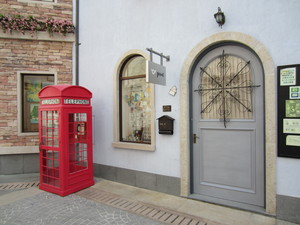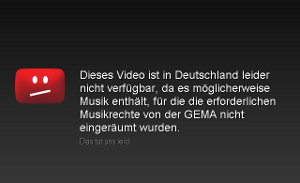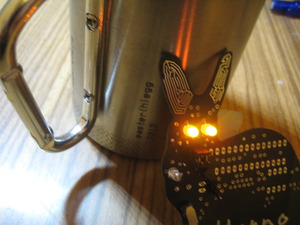Entries tagged as copyright
68 buch politik raubdruck aacs blueray drm hddvd kopierschutz abmahnung geodaten alecempire art banksy disney illegalart negativland aliens kriegderwelten pressefreiheit sciencefiction tomcruise amusementpark asia beijing china cinderella disneyland fake freesoftware shijingshan stepmania travel trip2011 culture freeculture graffiti remix almaty asia2013 aviation azerbaijan baikal belarus berlin border bus capsulehotel caspian ccp censorship childrensday chinghai climatechange coach dam dunhuang ecology erenhot erlian ferry flying greatfirewall guangzhou haikou hainan hohhot hongkong hostel hotel irkutsk journey kazakhstan khorgas kualalumpur language laos lenin listwjanka malaysia metro miradormansion mongolia moscow petropavl poland portbaikal publictransport pyramid qwerty rain rainforest russia sanya seat61 suprememaster terracottawarriors thailand tiananmen ticket train tram transport transsib transsiberian travelling typhoon ulaanbaatar ulan-ude ulanude urumqi vegan vegetarian visa warsaw waterpower weather windenergy xian xinjiang yanoda yekaterinburg yining zamyn-uud zensur alps arcade architecture astana baiterek boluo boten casino coffee computerhistory copycat ghosttown hallstatt huizhou khanshatyry koktobe luoyang magistral migrationcard migrationpolice mountains museum northwestchina retro retrogames shymbulak snow tankodrom barrierefrei bitv brigittezypries html justizministerium w3c 129a 1mai 23c3 24c3 27c3 a100 abgeordnetenhaus akongress akw allianz anarchiekongress antiatom atheismus atomkraft autobahn bahnhof belene bild brandenburg bundestagunited buskampagne bz ccc cellular compiz creativecommons dataretention datenschutz demonstration dose elephantsdream energie energietisch energiewende freedomnotfear freifunk freiheitstattangst frequencies frequency fsfe gott gsm informationsfreiheit itu jugendumweltbewegung jukss kamera kameraüberwachung kernkraft klima klimaschutz klimawandel kohle kohlekraft kongress königswusterhausen kyoto lessig linux mcplanet mobilephones moleculeman musik ökologie ökostrom openbsc openbts openstreetmap osm osmocombb papst peterschaar piratenpartei polizeigewalt preise privacy privatsphäre ratzinger re-publica re-publica09 religion rp09 rwe science security sony springer strom stromnetz tagebaue taz theory thermen topberlin treptow tuberlin überwachung ubuntu umwelt umweltschutz unserwasser urgewald verkehr videoüberwachung volksbegehren vorratsdatenspeicherung wahl wasser wg wiki windowsxp wiretapping wirklimaretter wos wos4 youtube zimmer berneconvention culturalflatrate eu eucopyrightdirective trips wipo bittorrent chaosradio filesharing mpaa piratbyrån piratebay thepiratebay warez arbeit arbeitskritik evrimsen jankroemer kapitalismus krisis nocopy raubkopie bücher gutenberg publicdomain bundestag bmi diebold epetition gema gemavermutung grundeinkommen internetzensur kerckhoff kts musikpiraten nedap netzneutralität petition wahlcomputer wahlmaschinen zensursula 4k aiglx assembler bewußtsein braunschweig bsideshn c4 ca cctv certificate cryptography darmstadt dvb easterhegg encryption entropia gpn gpn5 gpn6 gpn7 hacker hannover hash https karlsruhe licenses md5 mrmcd mrmcd100b mrmcd101b mysmartgrid papierlos passwörter pgp philosophie programmieren programming querfunk radio rsa rsaoaep rsapss server sha1 slides ssl stuttgart surveillance talk tls tpm transvalid überwachungskameras unicode utf-8 vortrag wiesbaden x509 xgl cedric corruptibles film hardware iromance laptop modding p30 samsung vlc webradio wlan yacy babelfish chinese english freizeitpark googletranslate journalismus mandarin presse russian tagesschau translation universaltranslator cpdl kinderlieder laterne laternenumzug sanktmartin vgmusikeditionen aavepyörä br breakcore copycan developingworld dvd fdl freemusic fruechtedeszorns goa internet jamendo license lug microsoft movie nerosdaysatdisneyland ogg paniq pioneerone planet presserat python series tuxmas tuxmas07 vorbis adresse agb antigenozidbewegung aok apache ard bahn bundesverfassungsgericht bürgerrechte bverfg datamining datensparsamkeit db diy einkaufen email fernsehen frankfurt fricard gez gnupg gpg hausdurchsuchung humanistischeunion ice innenpolitik jugendschutz justiz key köln metis mobil ninahagen optoutday ör rechtsbeugung reklame rfid richtervorbehalt schäuble schlüssel sha2 spam steuerid steuernummer uni verfassungsgericht verschlüsselung verschwörungstheorien verwertungsgesellschaft vgwort web20 webmontag werbung wga zdf zigaretten zigarettenautomaten g8 gamer heiligendamm killerspiele polizei protest rostock wien wkr di gvl kultur musikindustrie netradio savenetradio usa backnang ccwn macos vista waiblingen windows ebook hanvon michaelshart n526 openinkpot penguinbooks projectgutenberg spiritlevel fanart fanfiction hiddenfrontier movies startrek ifpi usbstick wizo comic deathproof dvdr emilyrose enigma esoterik exorzismus filmkritik fluchderkaribik grindhouse homosexualität jacksparrow johnnydepp keiraknightley kino kirche marvel mond mondverschwörung murrhardt orlandobloom piraten piratesofthecaribbean planetterror rodriguez spiderman superman tarantino turing verschwörungstheorie geo gps 3d 3ddrucker adobe ati base64 bash beryl bios blob bonn bufferoverflow camera canon chdk chemnitz chromium cinelerra clt code codecs compizfusion composite compression console csrf css cve ddwrt debian desktop digitalcamera driver eltorito evince exe ffmpeg firefox firmware france freewvs freiegesellschaft froscon froscon2007 fsf gaia games gargoyle gentoo ghost gimp glibc gnome google googleearth graphics grub heartbleed homebrew ibm ico icons icoutils iso ixus kde kpdf lenovo lpi lpic lspci lsusb memdisk messe nancy nessus nouveau nvidia okular olpc openexpo opengl opensourceexpo openssl openvas pciids pdf phoronix php poppler rapidprototyping rar realmedia realvideo redhat reprap reverseengineering rmll router rv30 rv40 s9y script serendipity sfd shellshock siegburg simcity society softwarefreedomday sqlinjection sumatrapdf sunras syslinux thesource theunarchiver thinkpad unar usbids video videoediting vulnerability web wii wiibrew windowsrefund wrestool xorg xss gedelitz wendland wendlandcamp funkerspuk patente radiopolitik garmin geocaching computer cybercrimeconvention gesetze hacktools passwort wiesbadenerkurier accessibility acid3 ajax browser heise internetexplorer javascript khtml konqueror max_width midori validator webcore webdesign webkit webstandards xhtml xml acceptableads adblock adblockplus deutschewelle gentechnik mobilegeeks computerspiele kulturgut 1und1 ac100 addresssanitizer android apt artikel asan augsburg augsburgerallgemeine c cacert cardreader clang come2linux core coredump cpu cpufreq crash deb delilinux demoscene distribution dmidecode essen esslingen fedora fma86t frankreich freedesktop gadgets gammu gatos gcc gnokii gphoto grsecurity gtk harddisk hddtemp howto hp http inkscape installparty iptables kgtk kubuntu libressl lit07 lm_sensors ludwigsburg luga lugbk mandriva memorysafety memorystick metisse mobile motherboard mplayer multimedia network nokia notebook omnibook openbsd openpgp overheatd overheating packagemanagement pcmagazin pcmcia proxy ptp qt r300 radeon randr12 ricoh rpm schokokeks sd sdricohcs segfault signatures smart smartbook smartmontools sncf squid standards subnotebook support symlink t61 time toshiba tv tvout usability usb useafterfree vc-1 webhosting webinale webroot websecurity webserver win32codecs wine wmv x1carbon zeitung webinale07 markenrecht patent cinema trekkie echoes afrika aids bono entwicklungshilfe grönemeyer medikamente merkel pharma bergpartei demokratie europawahl plebiszit stuttgart21 volksabstimmung bnn kaisersbach oberboihingen press schwäbischestaglatt sexismus spiegel tomorrow algorithm certificateauthority diploma diplomarbeit eff factoring gsoc keyserver nss observatory privatekey pss symantec thesis university diplomathesis simple upgoerfive words enterprise bundesrat cybercrime crookedforest forest gryfino nature places blackhat defcon lasvegas retrogaming ape audacious cartoon fileformats filter gstreamer libav monkeysaudio realaudio retrocomputing shn shorten totem voc vqf xine zzuf



 Über die GEMA könnte man viel schreiben und sich viel ärgern, etwa jedes zweite mal, wenn man auf ein Youtube-Video klickt und erzählt bekommt, dass dieses Video "in Deinem Land nicht verfügbar" ist. Ein besonders krasses Ärgernis ist aber die sogenannte GEMA-Vermutung. Sie bewirkt letztendlich, dass die GEMA Geld für Musiker kassieren kann, die überhaupt nicht bei ihr Mitglied sind.
Über die GEMA könnte man viel schreiben und sich viel ärgern, etwa jedes zweite mal, wenn man auf ein Youtube-Video klickt und erzählt bekommt, dass dieses Video "in Deinem Land nicht verfügbar" ist. Ein besonders krasses Ärgernis ist aber die sogenannte GEMA-Vermutung. Sie bewirkt letztendlich, dass die GEMA Geld für Musiker kassieren kann, die überhaupt nicht bei ihr Mitglied sind. Maybe you've heared that some years ago, a story about a fake Disneyland amusement park in China made some rumors in the media. As I love good fakes, I obviously had to take a look. The amusement park in question is
Maybe you've heared that some years ago, a story about a fake Disneyland amusement park in China made some rumors in the media. As I love good fakes, I obviously had to take a look. The amusement park in question is  The park had the advertisement slogan "Disneyland is too far to go" some years ago and some images of Mickey Mouse and other Disney figures in the park boosted the story (see
The park had the advertisement slogan "Disneyland is too far to go" some years ago and some images of Mickey Mouse and other Disney figures in the park boosted the story (see  The story of a fake Disneyland seems highly exaggerated. The Cinderella is probably no issue at all, as I doubt there's anything that makes it a special "Disney-Cinderella". I'm not sure if there was a copyright violation at all: The fake Mickey Mouse and other figures in combination with the solgan could probably be considered parody - which is legally allowed in most of the world's copyright laws.
The story of a fake Disneyland seems highly exaggerated. The Cinderella is probably no issue at all, as I doubt there's anything that makes it a special "Disney-Cinderella". I'm not sure if there was a copyright violation at all: The fake Mickey Mouse and other figures in combination with the solgan could probably be considered parody - which is legally allowed in most of the world's copyright laws. The park itself was kind of weird. Large parts of it were in really bad shape. Some looked like a construction site, many parts were not operational. On the other hand, other parts of it were really well-designed. One could hardly imagine that this was the same park.
The park itself was kind of weird. Large parts of it were in really bad shape. Some looked like a construction site, many parts were not operational. On the other hand, other parts of it were really well-designed. One could hardly imagine that this was the same park. A nice thing to mention: They had a dance dance revolution like arcade machine - but the game on it was
A nice thing to mention: They had a dance dance revolution like arcade machine - but the game on it was  Vor einigen Tagen wurde gemeldet,
Vor einigen Tagen wurde gemeldet, 
 Ich bin in den letzten Tagen ein bisschen in die Welt der Fan-Projekte von Star Trek eingetaucht. Es gibt eine ganze Reihe von nicht offiziellen Filmen und ganzen Serien, die von Fans erstellt wurden und im Netz kostenlos herunterladbar sind.
Ich bin in den letzten Tagen ein bisschen in die Welt der Fan-Projekte von Star Trek eingetaucht. Es gibt eine ganze Reihe von nicht offiziellen Filmen und ganzen Serien, die von Fans erstellt wurden und im Netz kostenlos herunterladbar sind.